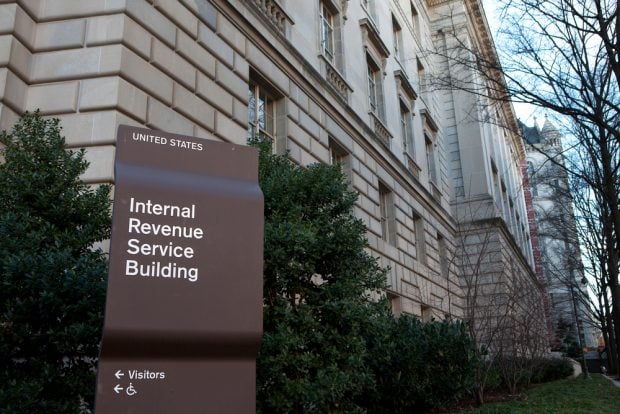 Internal Revenue Service, Washington D.C.
Internal Revenue Service, Washington D.C.
The IRS has revoked the tax-exempt status of a financially troubled California credit union.
The $590,634 Jones Methodist Church Credit Union in San Francisco, chartered in 1953 for its members who were being redlined or charged with unfair interest rates by banks, had its tax-exempt status automatically pulled on May 15, 2017 after the cooperative failed to file its Form 990 for three consecutive years.
Recommended For You
The last time Methodist Church CU submitted its Form 990-N to the IRS was for tax year 2013, according to the federal agency. When a nonprofit organization, including any state-chartered credit union, fails to submit a Form 990 for three consecutive years, that organization's tax-exempt status is automatically revoked.
California credit unions are required to incorporate under the nonprofit mutual benefit corporation law, which makes a credit union eligible to apply for tax-exempt status. However, the state's law does not require credit unions to have tax-exempt status, Lila Mirrashidi, California DBO's deputy commissioner, said.
Although the California DBO declined to comment as to whether it knew the credit union's tax exemption had been revoked, Jones Methodist Church CU no longer appears on an IRS list of tax-exempt organizations in the Golden State.
The NCUA declined comment, saying the credit union tax exempt revocation issue falls under California's DBO purview.
In addition to the tax-exempt revocation, California DBO issued a "final order" on August 22 against Jones Methodist Church CU to address its unspecified "unsafe and unsound practices within 30 days.
The order required the credit union to develop a list of suitable merger partners, state at what point management will contact those partners, complete due diligence review and begin the merger process.
The order also requires Methodist Church CU to update its business plan, a budget, complete an audit and conduct a bi-weekly FinCEN 314[a], a process that enables federal law enforcement to locate accounts and transactions that may be involved in terrorism or money laundering. To be clear, the California DBO order is not alleging any account or transaction improprieties at the credit union.
Nonetheless, the state's order also requires the credit union to submit a detailed plan to address all of the unresolved findings stemming from a December 2017 examination by state regulators. The findings were not specified in the order.
California DBO would not comment on whether Methodist Church CU has complied with the mandates listed in the final order.
Methodist Church CU President/CEO Hilary Byrde did not respond to CU Times phone and email requests for comment.
© Touchpoint Markets, All Rights Reserved. Request academic re-use from www.copyright.com. All other uses, submit a request to [email protected]. For more inforrmation visit Asset & Logo Licensing.







